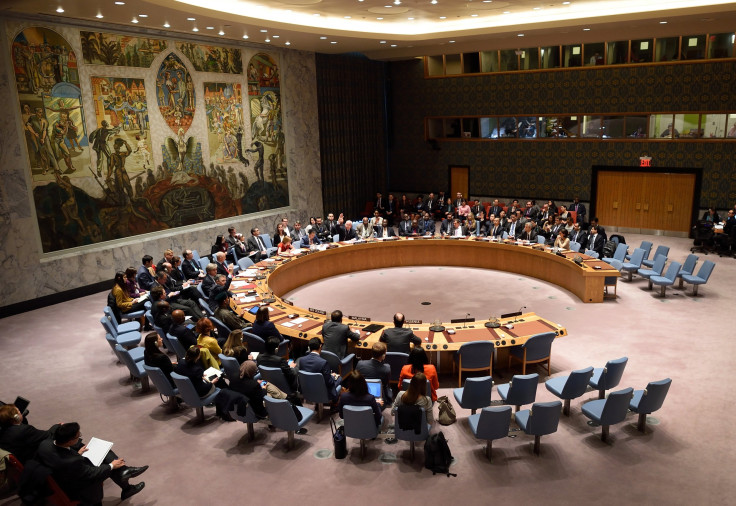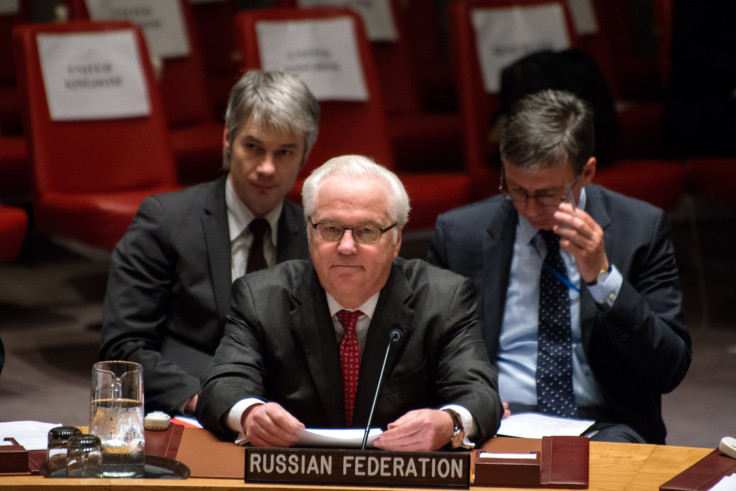UN Sanctions On ISIS Face Major Challenges From 'Negligent States,' ISIS-Controlled Territory

UNITED NATIONS — For the first time in its 70-year history, the finance ministers of 15 permanent and nonpermanent members of the United Nations Security Council convened Thursday in the U.N. headquarters in New York City. The unprecedented move underscored the severity of the topic of discussion: the threat of the Islamic State group.
U.S. Treasury Secretary Jacob Lew led what he called a “historic” meeting where members unanimously voted to pass a draft resolution aiming to cut off the financial arteries of the Islamic extremist group, also known as ISIS, and its affiliates.
More than a dozen states — including Iraq and Syria — are signatories to the resolution, making it an additional and significant step in the fight against ISIS, but two obstacles could compromise its effectiveness in crushing the group’s finances: the degree to which states implement the U.N.’s new anti-ISIS framework and the diffuse nature of the ISIS threat.
“The U.S., its allies and international community have made a real effort to build a counterterrorism architecture already at the U.N.,” said David Weinberg, a senior fellow at Foundation for Defense of Democracies. “The problem is that the existing system frequently gets ignored.”
Thursday's measures are an update to a security council resolution passed in 1999 created to target al Qaeda’s finances. Changes to the resolution allow the U.N. to impose sanctions on any individual or entity found to have an “association” with ISIS, effectively freezing their assets and banning international travel.
While it’s not realistic to impose sanctions on every civilian forced to pay ISIS taxes, the new U.N. resolution aims to control at least one way the terrorist organization makes money from local populations: kidnapping for ransom. In order to curb the transfer of money to ISIS, the resolution also called for consequences against anyone involved in the “payment of ransoms to individuals, groups, undertakings or entities on the ISIL and Al-Qaeda Sanctions List regardless of how or by whom the ransom is paid.”
The resolution stated that signatory states should individually take stronger action against the terrorist organization, citing a failure of some members to do so in the past. Each state, the resolution said, should commit to choking ISIS revenue routes through wider networks of information sharing to pinpoint individuals involved in ISIS’ major streams of revenue -- the illicit oil and antiquities trade -- and impose legal repercussions on those individuals.
Since it declared a so-called caliphate in July 2014, Treasury Secretary Lew estimated that ISIS had made $500 million from black market oil sales alone. At its inception, ISIS’ main source of revenue came from oil sales and ancient artifacts smuggling, but as it gains ground in Iraq and Syria, the terrorist group's largest source of revenue is a joint system of taxation and extortion, which is directly linked to the territory and local populations it is able to control.
"The U.N. system simply doesn’t have the authority to compel ISIL to cease taxing or fining the people it subjects. But it can dent its oil revenues by barring limiting the routes that smugglers use to transport the oil," Daniel R. DePetris, a Middle East analyst at Wikistrat, a geopolitical consulting firm, wrote in Defense One.
“Some of America’s allies are falling short on this,” Weinberg said. “If there are negligent states, there’s not much the U.N. can do ... This shows how low the global floor really is when it comes to countering terrorism. [The UN member states] have not determined how they are going to implement this.”
The need for follow through on the U.N. recommendations' implementation and the formation of a cohesive front against ISIS from signatory states was emphasized in remarks made by most of the 15 representatives present.

Russia's U.N. Ambassador Vitaly Churkin stressed that the international community could “only beat the evil with a common front” and that success in cutting off ISIS finances had to be “achieved by acting together, without double standards.”
Nigeria’s representative at the UNSC summit Joy Ogwu said that implementing sanctions on individuals helping ISIS build its fortune was “not enough…. we must make sure they work.” Ogwu spoke from bitter experience, since Nigeria has been struggling against a homegrown terrorist insurgency for more than a decade: ISIS affiliate Boko Haram. In her remarks after the Security Council vote, Ogwu emphasized that ISIS’ “insatiable appetite for territory” would be a major obstacle to cutting off the group’s revenue.
The newly adopted resolution requires that the United Nations release a detailed report about the state of ISIS’ finances in 45 days. Even without the report, sanctions are not likely to deplete ISIS’ expanding wallet, but they are a necessary step, according to Weinberg, because “unless we address it there will be another avenue the group can fall back on.”
© Copyright IBTimes 2024. All rights reserved.






















